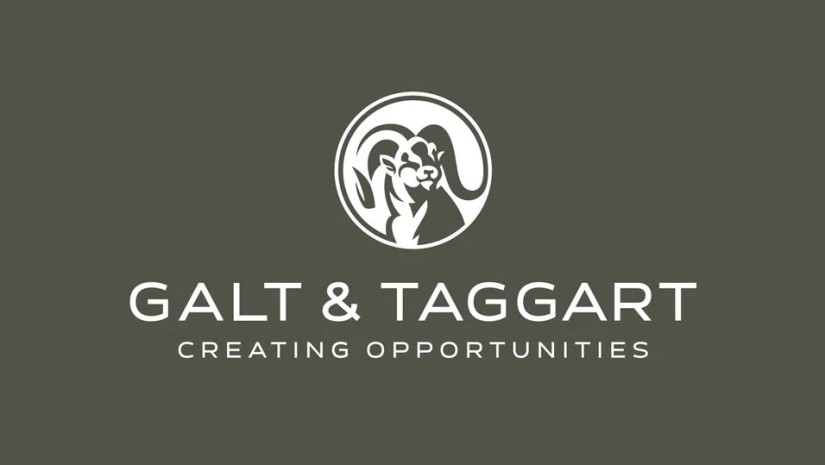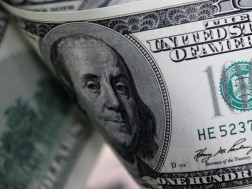Galt&Taggart published Global Markets Weekly Update.
USA
KASPI IPO:
Kaspi.kz, a leading mobile app company from Kazakhstan, recently made headlines with a notable surge in its U.S. shares. The company's shares rose by 4.3% following an upsized initial public offering (IPO), where it raised over $1 billion. This achievement marked it as the world's largest listing since October, surpassing even Birkenstock Holding Plc's $1.48 billion raised three months earlier. After closing at $95.97 on the Nasdaq Global Select Market (symbol KSPI) in New York, the company's market value reached about $18 billion, although there was a slight dip in share value after trading hours. In contrast, Kaspi.kz's global depositary receipts in London fell by 4.7%, indicating some variability in investor response. The IPO, managed by Morgan Stanley, JPMorgan Chase & Co., and Citigroup Inc., involved the sale of 11.3 million American depositary receipts, surpassing the initial plan of selling 9 million.Kaspi.kz operates primarily in Kazakhstan, offering the
Kaspi.kz Super App for consumers and the Kaspi Pay Super App for merchants. It boasts 13.5 million average monthly active users on its consumer app as of September 30. Additionally, Kaspi.kz is listed on the Kazakhstan Stock Exchange and the Astana International Exchange. Financially, the company has performed well, reporting a net income of $1.27 billion on revenue of $2.83 billion for the nine months ending September 30. This successful IPO could indicate a potential revival in the IPO market, ending a two-year lull and attracting attention from other IPO candidates.
THE WEEK AHEAD:
The tech sector will be in focus in the week ahead after a sizzling few sessions led by strength in chip stocks Nvidia (NVDA), AMD (AMD), Broadcom (AVGO), Arm Holdings (ARM), and Micron Technology (MU). Growth indicators will be in focus next week, with key releases including the preliminary Q4 GDP reading in the U.S. and the global flash PMIs. Central banks will also be busy, with monetary policy statements and interest rate decisions expected from the Bank of Japan, European Central Bank, and Bank of Canada. In the U.S., Federal Reserve members will be in a blackout period of no public talks ahead of the next FOMC meeting on January 30-31. The earnings calendar is very busy, with 70 SP 500 companies announcing results: TESLA, NETFLIX, AT&T, VISA.
Europe
European Central Bank (ECB) rate-setters smother early rate cut hopes:
In local currency terms, the pan-European STOXX Europe 600 Index ended the week 1.58% lower as comments from central bank policymakers prompted financial markets to scale back bets on an early reduction in interest rates. Major stock indexes were mainly softer. France’s CAC 40 Index fell 1.25%, Germany’s DAX declined 0.89%, Italy’s FTSE MIB eased 0.61%, and the UK’s FTSE 100 Index lost 2.14%.
European government bonds were generally weaker. Yields on Germany’s two-year sovereign note climbed to more than 2.7%, while the yield on Italy’s two-year note increased to 3.2%. In the UK, the yield on the two-year gilt reached 4.2% after data indicated that inflation had accelerated, dousing hopes for a reduction in interest rates.
ECB President Christine Lagarde signaled it was “likely” that interest rates would be cut in summer, not spring as the market had increasingly come to expect. When asked by Bloomberg at the World Economic Forum in Davos if she agreed with Governing Council members who had indicated that they expected a rate cut midyear, Lagarde replied: “I would say it is likely too, but I have to be reserved.” She said that the ECB would have crucial information on wages that would influence a policy decision by “late spring.”
German economy avoids technical recession but shrinks in 2023
The German economy shrank 0.3% in the final quarter of 2023, according to a preliminary estimate, but an upward revision to the previous quarter meant that Germany avoided a second straight quarter of contraction—the technical definition of a recession. However, gross domestic product is estimated to have shrunk by 0.3% over the whole of 2023.
UK inflation rises unexpectedly; wage growth slows, retail sales drop
The annual rate of inflation defied expectations for further easing in December, ticking higher to 4.0% from 3.9% in November—the first increase in 10 months. The Office for National Statistics attributed the acceleration, in part, to higher tobacco prices. Core inflation, which excludes volatile energy and food prices, was unchanged at 5.1%.
Other data provided mixed signals for policymakers. Growth in wages, excluding bonuses, slowed to its weakest pace in nearly a year, rising 6.6% from year-ago levels in the three months through November. However, retail sales volumes were much weaker than expected in December, falling 3.2% sequentially for their biggest month-over-month drop since January 2021.
Japan
EASING INFLATION CHALLENGES VIEW THAT BOJ COULD HIKE RATES MULTIPLE TIMES THIS YEAR
As yen weakness prompted strong performance from exporters, Japan’s stock markets rose over the week, with the Nikkei 225 Index gaining 1.1% to reach a 34-year high and the broader TOPIX Index up 0.6%. Further signs of easing inflationary pressure dampened expectations about any shift in the Bank of Japan’s (BoJ’s) monetary policy stance at its January 22–23 meeting. The likelihood of the BoJ exiting its negative rates policy in the near term had already been reduced due to the economic impact of the deadly earthquake that struck Japan’s Noto Peninsula on New Year's Day.
As the chances of an imminent interest rate hike in Japan appeared to recede, the yen weakened to around JPY 148 against the U.S. dollar, from the prior week’s high-144 range. The yen’s rapid decline prompted fresh verbal intervention by Finance Minister Shunichi Suzuki, who said that the government was watching currency moves carefully and that currencies should move stably reflecting fundamentals.
In the fixed income markets, as U.S. Federal Reserve officials adopted a more hawkish tone, the yield on the 10-year Japanese government bond rose to 0.66% from 0.59% at the end of the previous week, tracking U.S. Treasury yields higher.
On the economic data front, Japan’s core consumer price index (CPI) rose 2.3% year on year in December, down from November’s 2.5%. The in-line CPI print was the lowest since June 2022. However, the BoJ has anticipated a slowdown in consumer inflation.
This appeared to challenge the view of some investors that the BoJ could hike interest rates multiple times this year, as the central bank has repeatedly stated that it will maintain its ultra-accommodative monetary policy stance until it sees a sustainable rise in inflation driven by wage growth. Headline wage growth slowed sharply in November. Many investors have instead converged around the view that the BoJ will wait for more data before any shift in its stance—including the outcome of the “shunto” wage negotiations between large firms and unions in March.
China
NEW HOME PRICES FALL AT STEEPEST PACE IN ALMOST NINE YEARS
Stocks in China slumped as the latest indicators underscored the weak outlook for the economy. The Shanghai Composite Index, which is popular among domestic investors, fell 1.72%, its eighth weekly drop in the past nine, according to Bloomberg. The blue chip CSI 300 gave up 0.44%, its ninth weekly drop in the past 10 weeks. In Hong Kong, the benchmark Hang Seng Index plunged 5.76%, according to FactSet.
China’s gross domestic product expanded 5.2% in the fourth quarter over a year earlier and for the full year of 2023, meeting Beijing’s official annual growth target. On a quarterly basis, the economy grew 1.0%, up from the third quarter’s 0.8% expansion. Quarterly readings provide a better reflection of China’s underlying growth than comparisons from a year ago, when major cities were still under pandemic lockdown.
However, other data highlighted pockets of weakness in China’s economy. Retail sales rose a lower-than-expected 7.4% in December from a year earlier, down from November’s 10.1% increase. Fixed-asset investment grew an above-forecast 3.0% for the full year amid higher infrastructure growth, but a decline in real estate investment deepened. December industrial production rose more than expected from a year ago, while urban unemployment edged up to 5.1% from November’s 5.0%. The youth jobless rate was 14.9% in December compared with a record high 21.3% in June, after which the government suspended the report, saying that it needed to do more research on its data collection methodology.
In monetary policy news, the People’s Bank of China (PBOC) injected an above-forecast RMB 995 billion into the banking system via its medium-term lending facility, but left the lending rate unchanged, disappointing traders. Nevertheless, many analysts predict that the PBOC will loosen policy this year and could cut its reserve requirement ratio to boost demand.
China’s new home prices fell 0.4% in December, down from November’s 0.3% decline, marking the sixth consecutive monthly drop and the fastest fall since February 2015, according to the statistics bureau. Following a brief recovery in early 2023, China’s yearslong real estate slump has been a major headwind to its economy despite Beijing’s efforts to prop up the sector.
















